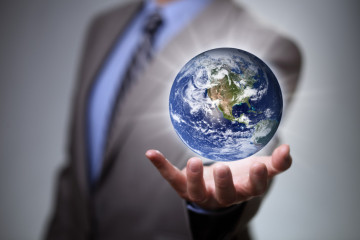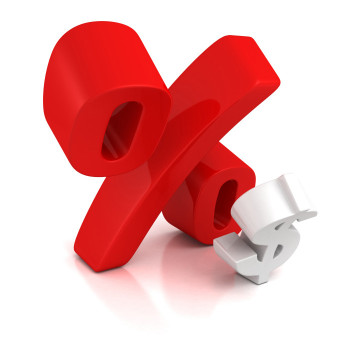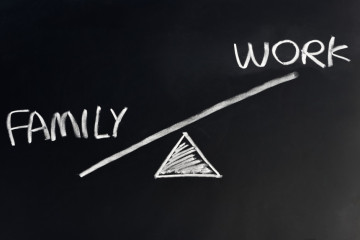The Economics of Happiness
According to a newly released report the world’s richest 1% is likely to control half of the world’s wealth by 2016. This report, released by Oxfam, a 17-member  international organization working in global collaboration to fight against world poverty, offered up this finding that was timed to coincide with the World Economic Forum in Davos, Switzerland. This figure while staggering is not a new revelation and similar reports have circulated for years acting as harbingers of an impending global financial tilt. However, Oxfam’s report was different in that it said that the comparison had now become even more stark, “with the 80 richest people having the same wealth as the poorest 50%.” You guessed it; the rich are getting richer and the poor are getting poorer. If you reside somewhere along the continuum of the lower 99.99% you might presume that for the 1%, life is “funner,” more affluent, and happier. Perhaps it goes without saying that being rich certainly has it’s fun perks and that money tends to beget more money; but, happier? Are the chosen few who have ascended to the top of the gilded heap, happier? Superlatively speaking, there are a gazillion studies that have found that the relationship between having money (and lots of it) does not correlate to being happier. And, if that is indeed the case, is that because money can’t buy happiness or is it because the lucky few among them don’t know what happiness is?
international organization working in global collaboration to fight against world poverty, offered up this finding that was timed to coincide with the World Economic Forum in Davos, Switzerland. This figure while staggering is not a new revelation and similar reports have circulated for years acting as harbingers of an impending global financial tilt. However, Oxfam’s report was different in that it said that the comparison had now become even more stark, “with the 80 richest people having the same wealth as the poorest 50%.” You guessed it; the rich are getting richer and the poor are getting poorer. If you reside somewhere along the continuum of the lower 99.99% you might presume that for the 1%, life is “funner,” more affluent, and happier. Perhaps it goes without saying that being rich certainly has it’s fun perks and that money tends to beget more money; but, happier? Are the chosen few who have ascended to the top of the gilded heap, happier? Superlatively speaking, there are a gazillion studies that have found that the relationship between having money (and lots of it) does not correlate to being happier. And, if that is indeed the case, is that because money can’t buy happiness or is it because the lucky few among them don’t know what happiness is?
 Many of the one-percent elite work or have worked on Wall Street. Almost all of the elite share a dogged drive for success, working long hours and perhaps even to an addictive level. As for happiness, it’s virtually impossible to achieve a state of happiness and contentment while continually propelling upward one’s personal wealth quotient. While I was never privy to those select ranks, I did work long hours trading on Wall Street and participated in the pursuit of the money game so I don’t hold myself above reproach. Yes, I was happy, but like many today, I gauged my happiness on external benchmarks in lieu of measuring what happiness meant to me. That level of happiness inevitably unraveled because I was only experiencing happiness, or lack thereof, as a precarious state of what I had yet to achieve, accomplish or acquire and not by how content I felt at the time. This externalized measure is what University of Southern California economist Richard Easterlin calls the hedonic treadmill. According to this theory, as a person makes more money his or her expectations and desires rise concurrently which has the result of rendering any gains in happiness, provisional. Put in other terms, one has to keep walking (making money) just to stay in the same place.
Many of the one-percent elite work or have worked on Wall Street. Almost all of the elite share a dogged drive for success, working long hours and perhaps even to an addictive level. As for happiness, it’s virtually impossible to achieve a state of happiness and contentment while continually propelling upward one’s personal wealth quotient. While I was never privy to those select ranks, I did work long hours trading on Wall Street and participated in the pursuit of the money game so I don’t hold myself above reproach. Yes, I was happy, but like many today, I gauged my happiness on external benchmarks in lieu of measuring what happiness meant to me. That level of happiness inevitably unraveled because I was only experiencing happiness, or lack thereof, as a precarious state of what I had yet to achieve, accomplish or acquire and not by how content I felt at the time. This externalized measure is what University of Southern California economist Richard Easterlin calls the hedonic treadmill. According to this theory, as a person makes more money his or her expectations and desires rise concurrently which has the result of rendering any gains in happiness, provisional. Put in other terms, one has to keep walking (making money) just to stay in the same place.
So, after wealth is accumulated the richer among us are still not quite the happier among us. The happiness that we believed would materialize with that next financial milestone would apparently only dissolve once reached. For most, reaching a goal is rewarding enough, perhaps even enthralling since the joy is in the accomplishment itself. For those consumed with wealth obsession recognizing when enough is enough becomes the daily lesson.
 Predictably my clients’ goal, if not the goal during an initial therapy session, is to “be happier,” which, in turn, prompts my next question, “What would have to change in your life for you to feel happier?” Whether clients are living in the one or ninety-ninth percentile of opulence, happiness as they come to find is an inside out pursuit, driven more by mining the depths of their heart than the depths of their investments. Money, per sé becomes a tool to help cultivate happiness and not a yardstick by which it is measured. In Happy Money: The Science of Smarter Spending, co-authors Elizabeth Dunn and Michael Norton, a Professor of Business Administration in the Marketing Unit at the Harvard Business School described how spending one’s money differently was more important than cultivating more of it. Taking a lesson (or five) from Happy Money would suggest that how we spend our money is a greater contributing factor to our happiness than needing more of it to be happier. For example, using money to buy an experience with a loved one or friend is more gratifying than buying things…that’s to say, money to live and experience life with loved ones is more rewarding because we create happy memories; Learn to relish and savor that which you have bought instead of binge consume that which you have acquired; Use your money wisely to make decisions that won’t deplete your time. As the adage goes, time is money; Pay for purchases upfront in order to put aside the tension of having spent the money. This will result in fully enjoying the moment; Money spent on others is more rewarding than money spent on self. Those that spent money on themselves did not fare as well in the happiness department as those who spent money on others. This is akin to doing service in 12-step which reaps many personal gains while building connection in a community of support.
Predictably my clients’ goal, if not the goal during an initial therapy session, is to “be happier,” which, in turn, prompts my next question, “What would have to change in your life for you to feel happier?” Whether clients are living in the one or ninety-ninth percentile of opulence, happiness as they come to find is an inside out pursuit, driven more by mining the depths of their heart than the depths of their investments. Money, per sé becomes a tool to help cultivate happiness and not a yardstick by which it is measured. In Happy Money: The Science of Smarter Spending, co-authors Elizabeth Dunn and Michael Norton, a Professor of Business Administration in the Marketing Unit at the Harvard Business School described how spending one’s money differently was more important than cultivating more of it. Taking a lesson (or five) from Happy Money would suggest that how we spend our money is a greater contributing factor to our happiness than needing more of it to be happier. For example, using money to buy an experience with a loved one or friend is more gratifying than buying things…that’s to say, money to live and experience life with loved ones is more rewarding because we create happy memories; Learn to relish and savor that which you have bought instead of binge consume that which you have acquired; Use your money wisely to make decisions that won’t deplete your time. As the adage goes, time is money; Pay for purchases upfront in order to put aside the tension of having spent the money. This will result in fully enjoying the moment; Money spent on others is more rewarding than money spent on self. Those that spent money on themselves did not fare as well in the happiness department as those who spent money on others. This is akin to doing service in 12-step which reaps many personal gains while building connection in a community of support.
Helping my clients recover from their addictions to sex or money obsession or “never feeling good enough” befalls a client regardless of his or her demographic and/or income percentile. And, recovery can only happen as they redefine their definition of what is financially “enough.” That pursuit is also defined by their new definition for happiness. In the words of James A. Baldwin, “Money, it turned out, was exactly like sex, you thought of nothing else if you didn’t have it and thought of other things if you did.”
As the über wealthy convene on Davos, Switzerland for the World Economic Forum one thing is certain—they think of other things!
